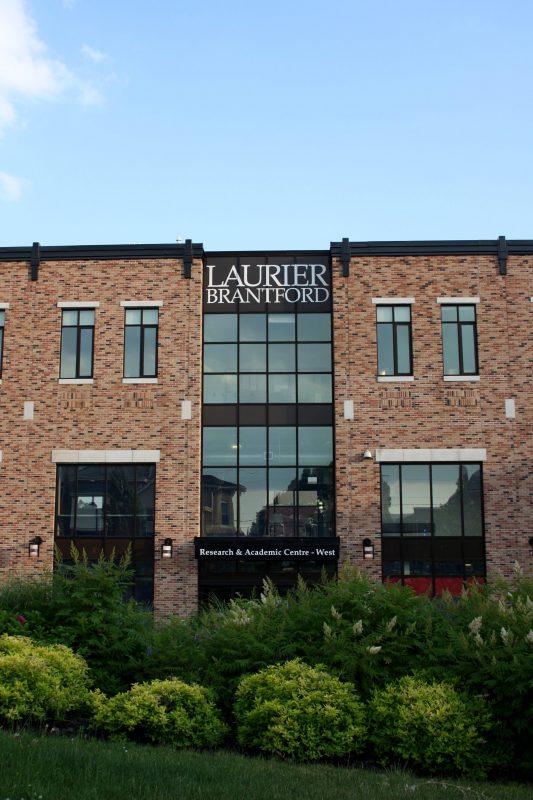Revisiting feedback and responses to Robitaille’s cancelled keynote


After defence lawyer Danielle Robitaille cancelled her keynote presentation at Wilfrid Laurier University’s Criminology Student Association conference on the Brantford campus, the Laurier community, as well as numerous publications around Kitchener-Waterloo and the Greater Toronto Area, began the debate on what constitutes free speech on university campuses.
On March 3, Danielle Robitaille was announced by the CSA as one of the conference’s keynote speakers.
Robitaille came into the spotlight in 2014 after becoming former CBC radio host’s Jian Ghomeshi’s defence lawyer, who was tried and acquitted for sexual assault.
As a response, the Advocates for a Student Culture of Consent (ASCC) created an official Facebook page called “We Believe Survivors: a Call to Action at Laurier Brantford” as a form of resistance to Robitaille’s presentation.
“We believe that this event not only decenters this work, but actively challenges the trajectory that Laurier has been creating around Gendered Violence,” read the group’s Facebook post.
On March 7, it was announced by the CSA that Robitaille cancelled her presentation at the conference, supposedly due to safety concerns for herself and other conference members.
Since the announcement of her cancellation, numerous editorials and opinion columns have discussed the controversy surrounding Robitaille’s cancelled presentation and if it was the right decision.
One of these opinion columns titled “Free speech at university under attack … again” was written by Laurier Brantford’s associate professor of digital media and journalism and religion and culture, David M. Haskell.
In his column, Haskell focused on how free speech is being scrutinized on university campuses and how the ability to think critically from students is being exposed to challenging ideas.
“Unfortunately, the truth of that argument is called into question when significant numbers of our students demand not to be exposed to competing ideas,” Haskell wrote in his column.
In an email statement to The Cord, Haskell focused on the case that several times a month on post-secondary campuses in North America, a group of students prevents another group from hearing a speaker they wanted to hear and how the “intolerance … toward diversity of ideas … must stop.”
“It must be stopped because stifling and censoring ideas is in complete opposition to the mandate and mission of universities. The very essence of a university is the fostering of open, unconstrained inquiry though freedom of expression — be it spoken or written.”
“Shutting down speakers who hold ideas that you disagree with, or encouraging students that such behaviour is legitimate on a university campus, directly contradicts the values and mission … of a university.”
“It contradicts the values and mission of our university,” Haskell wrote in his statement.
At the end of his statement, Haskell concluded that the university must make a choice to foster an environment where Laurier’s greatest priority is the pursuit of knowledge, which comes through an open contest of ideas.
“In short, I want to see a policy passed that ensures Wilfrid Laurier University is safe place for ideas, even the controversial ones. I hope others on campus who are of the same mind will begin to raise their voice in support of free speech.”
On March 20, ASCC published an open letter to the Laurier community, which critiqued the university’s participation in the conference and their reaction to ASCC after Robitaille’s cancellation.
“You exploit ASCC’s unpaid labour when it serves you, and then are silent as you allow your professors and deans to scoff at us and publicly pick their teeth with our bones. We see you, Laurier, and we are so disappointed,” read the letter.
The co-founder of ASCC, Brittany Bennett, also published a column to The Waterloo Record as a response to the organization’s reaction to Robitaille’s keynote presentation.
In her article, Bennett explained how an ASCC representative met with the CSA regarding their concerns with the keynote.
According to Bennett, ASCC practiced peaceful democratic action and utilized the power of free speech, rather than shutting it down.
“An ASCC representative met with the CSA regarding the above concerns, feeling limited within such a short time-frame to respond.”
“Unfortunately, the association chose not to implement any of the support measures we suggested, and advertising for the event focused on the titillating scandal rather than critical inquiry,” Bennett wrote in her column.
According to The Record, Robitaille’s law office released her correspondence to Laurier students. Robitaille outlined that she would have shown up to the conference if she was given more time to prepare if possible protests broke out.
“I simply don’t have a sense of the scope of the objection, whether any International Women’s Day demonstrations will be combined with protests against the talk,” Robitaille wrote in cancelling, as published in The Record. “From my perspective, the roadblock here is logistical and there are no hard feelings.”


